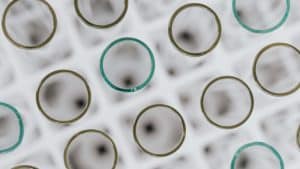To borrow the metaphor, you may have to kiss a few frogs along the way before you find that prince — or princess — or a practitioner. But in some cases, it becomes clear that this is not a working relationship, and it's time to move on.
Here are seven signs that you definitely need a new doctor.
1. Your Doctor Questions Whether Fibromyalgia, Chronic Fatigue Syndrome or Adrenal Insufficiency Are "Real" Diagnoses
If you get an inkling that your doctor lumps Fibromyalgia and Chronic Fatigue Syndrome — as well as adrenal insufficiency — into the category of psychosomatic, somatoform illnesses, or suggests that they are somehow not real, "made-up," "trendy," or in your head, it's a clear warning that you need a new doctor. Move on to a more knowledgeable practitioner who is up on the latest research and findings about these conditions.
2. Your Doctor Bristles at the Word "Bioidentical"
Bioidentical — when it comes to hormones — really has two meanings to the medical world. On one hand, it refers to hormones that are made to be identical in characteristics to the ones naturally produced by the body. On the other hand, "bioidentical" can refer to a whole industry of compounded, prescription hormonal medications, not brand-name manufactured pharmaceuticals — that is sometimes looked upon suspiciously by conventional physicians.
Many physicians recognize that bioidentical hormones - unlike the chemically manipulated, synthetic and conjugated versions that drew such negative publicity in recent years — may have fewer risks associated with their use. But at the same time, the most conventional among them still continue to hand out conjugated estrogens and synthetic progesterones like Premarin and Prempro, instead of the bioidentical estradiol and natural progesterones, because they refuse to prescribe "bioidenticals," believing incorrectly that only the compounded custom formulations — which can be more expensive and not covered by insurance — are "bioidentical." Wrong! There are brand name prescription manufactured drugs for hormone replacement that ARE bioidentical, and are usually covered by insurance, or available through HMOs, including:
- Bioidentical estradiol patches: Estrace, Vivelle-Dot, Climara, Minivelle
- Bioidentical estradiol creams: Vagifem, Estrace Vaginal Cream, Estring
- Bioidentical progesterone - oral: Prometrium
- Bioidentical progesterone - gel: Crinone
If your doctor doesn't know this, well, you probably need a new doctor, and it's time it to say goodbye.
3. Your Doctor Thinks Everything is Depression and Stress
You go into the doctor to complain that you are losing hair. Diagnosis? Stress. You complain about being tired. Diagnosis? Depression. You are gaining weight, with no change to your food and fitness routine. Diagnosis? Stress AND depression. And in any of these scenarios, no blood tests are ordered, but you're sent on your way with a prescription for an antidepressant.
If this sounds familiar, its time to consider another doctor. Yes, in rare cases stress can make your hair fall out. But what is far more likely is that hair is responding to low ferritin levels (stored iron), or an underactive thyroid, or estrogen/progesterone imbalances.
Fatigue can be related to stress and depression, but if you've just had a baby, or are in your 40s and beyond, fatigue should trigger a thorough thyroid panel along with medical history.
Weight gain? Your doctor should be checking fasting glucose, leptin, and thyroid levels.
If your doctor doesn't do any detective work to get at the root of your symptoms, but instead just sends you off with an antidepressant or anxiety medication, you need a new doctor.
4. Your Doctor Only Tests (And Uses) the TSH Test for Thyroid Disease
It's a sore point for many conventional doctors and endocrinologists, versus the integrative medical world, but the people who pay the price for the controversy are the patients.
The TSH - thyroid stimulating hormone - test only measures a pituitary hormone, a secondary look at what the thyroid might be doing. To get a true sense of what's going on, we need to look at the thyroid antibodies (that may be attacking the thyroid or causing it to become over- or underactive), as well as the actual circulating thyroid hormones in the bloodstream — the Free T4 and Free T3 levels. A look at Reverse T3 - an inactive form of thyroid hormone that can block cells' ability to take on thyroid hormone, is also part of the picture.
Whether you're still undiagnosed, or already being treated — if your doctor runs a TSH test and declares you "normal" but you have thyroid symptoms, you need a new doctor, one who understands the nuance of the diagnosis and treatment process.
5. Your Doctor Only Uses Levothyroxine Drugs Like Synthroid
Estimates vary, but somewhere from around 23 to 50 million + Americans have thyroid disorders. Many of them are undiagnosed. But the vast majority of diagnosed thyroid patients are hypothyroid, and are on some form of prescription levothyroxine, a synthetic form of the T4 thyroid hormone. Brand names include Synthroid, Levoxyl, Tirosint, and Eltroxin.
T4 is inactive, in that it must be converted in the body to T3, the active hormone, to be used by cells. At the same time, in studies, the majority of millions patients feel better on a thyroid treatment that combines some form of T4 (synthetic or natural) with a T3 component. Yet many conventional doctors and endocrinologists refuse to add T3 to a levothyroxine therapy, or to use a T4/T3 drug like natural desiccated thyroid (Armour, NatureThroid).
If your doctor is a one-trick pony when it comes to thyroid medications, and you don't feel well, it's time to push for a change, or find a doctor who knows how to resolve hypothyroidism symptoms, not just hand out prescriptions.
6. Your Doctor Doesn't Believe in Vitamins or the Role of Nutrition
There are conventional doctors who proudly declare that they do not "believe in" vitamins. Some say you get everything you need in food. Others say that except for obesity or diabetes, nutrition doesn't plan a role in wellness. Even better informed and well-intentioned doctors may have had little to no education in nutrition during med school, and may have little to offer in the way of constructive advice.
If this sounds familiar, it may be time to find a new doctor, an integrative holistic practitioner who understands the integral role of gut health and nutrition — and supplementing imbalances and deficiencies. At minimum, consider adding a good holistic nutritionist or knowledgeable naturopath to your team.
7. Your Doctor Resents Your Research and Questions
There is a subgroup of doctors who are still playing by the old rules: "I am the doctor, you are the patient, and don't you dare question me while I'm up here on my pedestal!" They don't want patients who ask any questions — much less intelligent, well-informed patients who have done their own reading and research. They dismiss information you get from the Internet, write off what you've learned from books (unless patronizing patient guides written by their colleagues or medical societies), and expect "compliance" — which to them means blind acceptance of their diagnoses and treatment protocols.
If your doctor falls into this category, he or she is not likely to accept you as a partner in your own health care, and may fall into the "patients should be seen and not heard" school of medicine. Definitely time to move on to a more collaborative physician!
Does your doctor show any of the above signs? It's time for a new one. For even more warning signs that you need a new doctor, read this!


